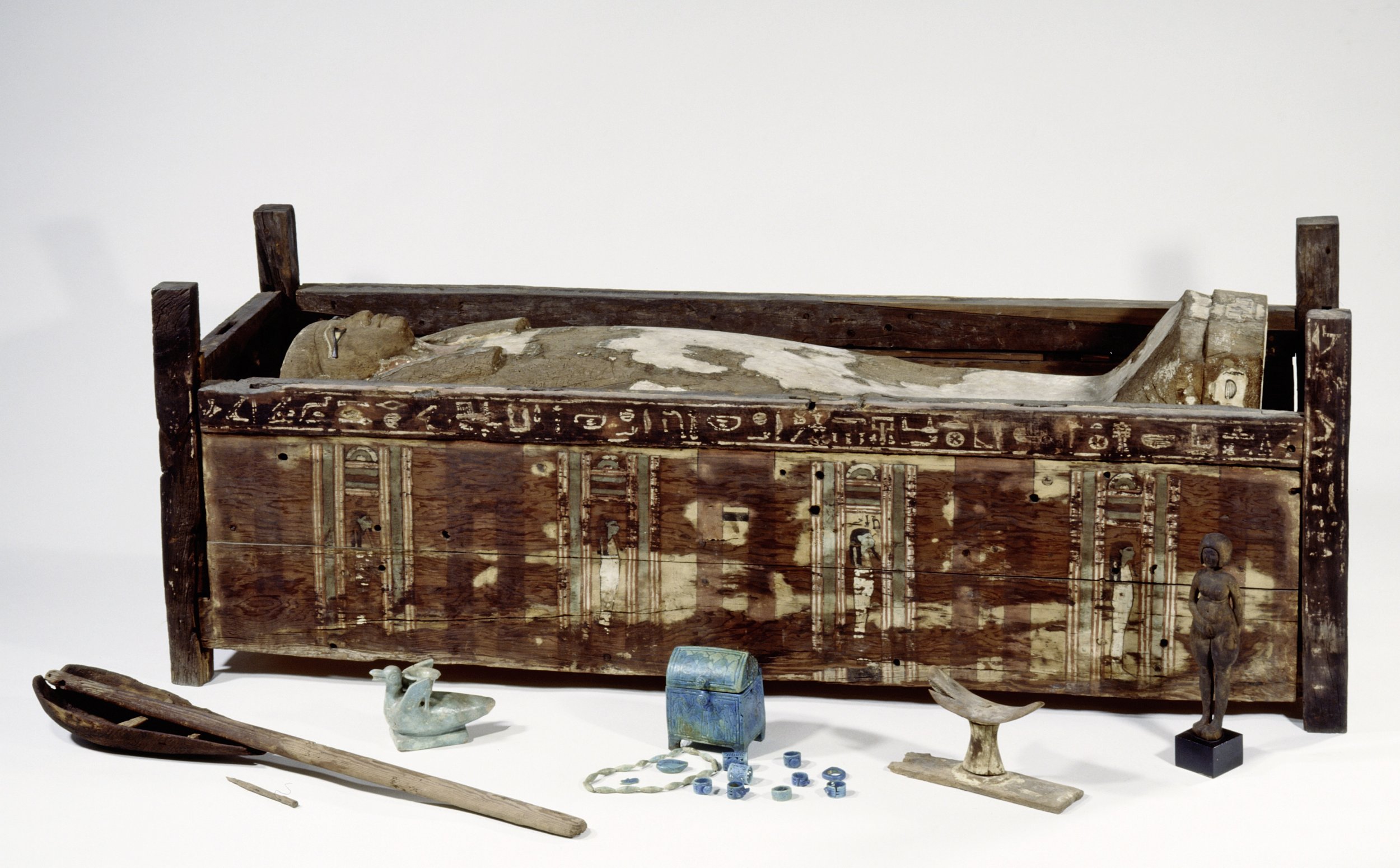
Many treasures have been found in the mummy-laden crypts of ancient Egyptians, such as items made of gold, silver and other precious metals. But the mummies themselves contain a very valuable material—DNA—holding important information about the ancient Egyptians and whence they came. Now, for the first time, researchers have analyzed DNA from a large number of mummies, using a method they say avoids the potential for contamination, shedding light on the mysteries of old Egypt.
In a study published May 30 in the journal Nature Communications, scientists looked at DNA from 151 mummified Egyptians, which were entombed from about 1400 B.C. to just after 400 A.D., in the Roman period. They found that the genetic material within the mummies was more similar to ancient peoples of the Near East and the Levant (an area of the eastern Mediterranean including Israel and Palestine) than it is to modern Egyptians. Their analysis suggests that conquests by Alexander the Great and other foreigners didn't have as large a genetic influence on ancient Egyptians as some have thought, says study first author Verena Schuenemann, with the Institute for Archaeological Sciences at Germany's University of Tübingen. The study also shows genetic linkage between ancient Egyptians and Neolithic peoples from modern-day Turkey and Europe, Schuenemann says.
Three mummies had enough DNA preserved to allow the scientists to look at genes from throughout their genome. One of these had a gene "which contributes to lighter skin pigmentation and was shown to be at high frequency in Neolithic Anatolia," or modern-day Turkey, the researchers wrote.
The researchers obtained mitochondrial DNA—genetic material found outside a cell's nucleus, which is passed down from mothers to their offsprings—in 90 individuals. "We were surprised to observe [such] good mitochondrial DNA preservation," Schuenemann says. "We did not expect this due to environmental conditions and chemicals used in mummification process." The authors suggest using these techniques could help others study DNA from a wide sample of mummies.
The research "succeeds where previous studies on Egyptian mummies have failed or fallen short," Hannes Schroeder, a paleogeneticist at the University of Copenhagen who wasn't involved in the study, told Nature.
Scholars have debated whether Egyptian DNA might be too degraded to analyze, and the degree to which this material might be contaminated with modern genetic material. To avoid contamination, the researchers did their work in a clean room and treated mummified parts with UV light to remove recently deposited DNA, and scraped off exteriors of bones to get to the genetic material within.
The mummies come from the archaeological site of Abusir el-Meleq, situated on the Nile River in what was ancient Middle Egypt. Since all the mummies were from this area, the scientists note that their results cannot be generalized to the south or north of Egypt (Upper or Lower Egypt), which may have been more or less affected by foreign conquest.
The study also suggests that gene flow from Sub-Saharan Africa to Egypt has significantly picked up in the last 1,500 years, likely facilitated by the slave trade, which began early in this time period.
Uncommon Knowledge
Newsweek is committed to challenging conventional wisdom and finding connections in the search for common ground.
Newsweek is committed to challenging conventional wisdom and finding connections in the search for common ground.
About the writer
Douglas Main is a journalist who lives in New York City and whose writing has appeared in the New York ... Read more
To read how Newsweek uses AI as a newsroom tool, Click here.








